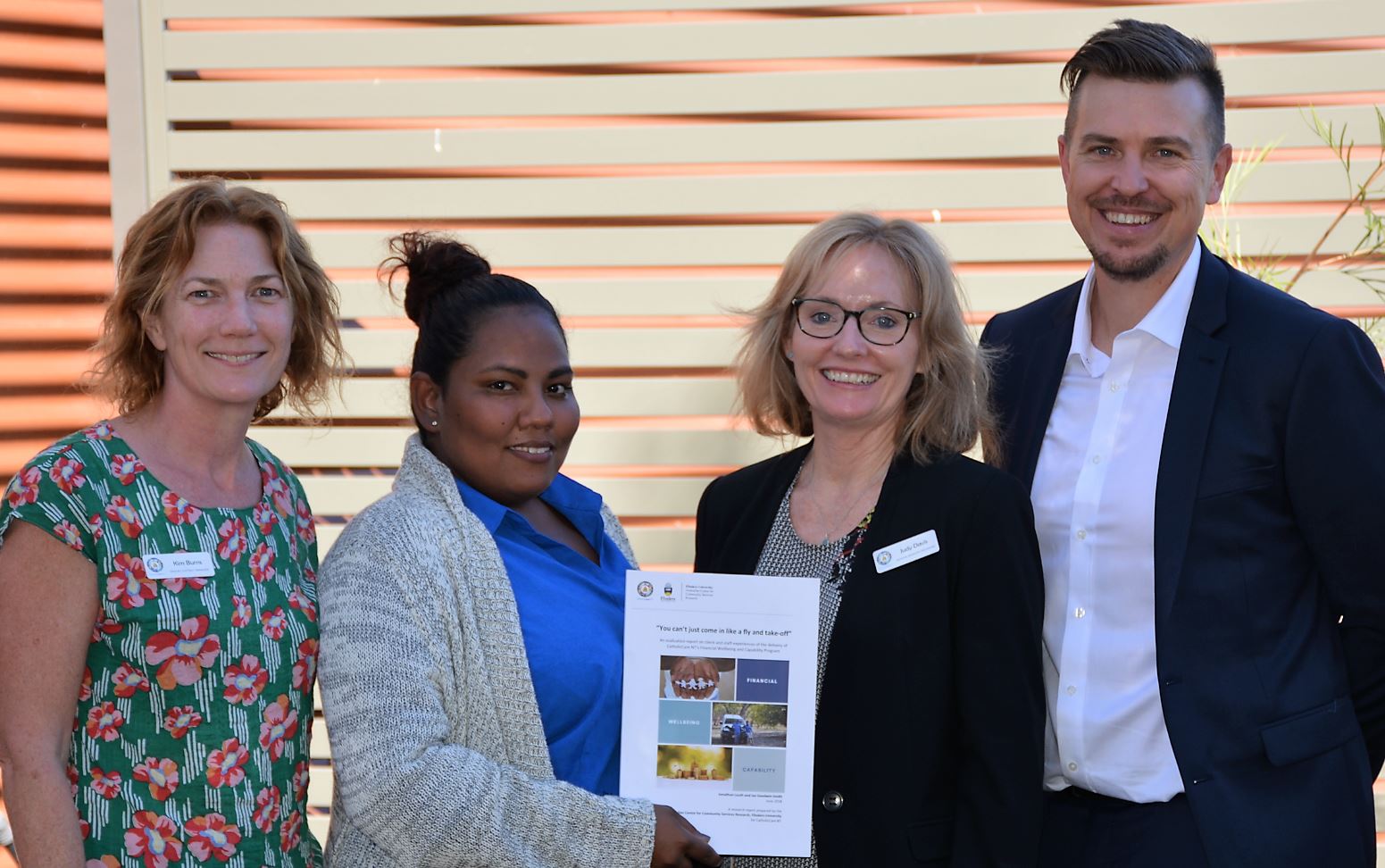
Payday lenders and charity collectors are cashing in on vulnerable outback communities with inadequate or limited knowledge about financial services.
A report released this week by Flinders University, in collaboration with CatholicCare NT, recommends expert financial assistance and a money management program to improve the financial wellbeing of remote Indigenous communities with poor financial literacy.
“We often identified recurring payments to charities and payday lenders that the clients had little knowledge about,” says co-author Dr Jonathon Louth from the Australian Centre for Community Services Research at Flinders University.
“What we are talking about are blatant exploitative practices,” Dr Louth says.
The research shows these practices are occurring because financial products and concepts are not well presented or understood in remote communities.
“One community member shared a story of how they borrowed $18,000 for a car at an interest rate of 35%. In the end, they paid back $52,000 for an overpriced used car that had long since stopped working,” Dr Louth says
Dr Louth travelled an estimated 6,000km to visit 14 communities across the outback last year, accompanying teams delivering CatholicCare NT’s Financial Wellbeing and Capability Program (FWC) to conduct in-depth interviews and community conversations with front-line staff and clients.
“Outreach teams work closely with clients to identify outgoings that many of them are not aware of because they are unsure how to interpret bank statements,” says Dr Louth, who compiled the ‘You can’t just come in like a fly and take-off’ evaluation report with Associate Professor Ian Goodwin-Smith, director of the Australian Centre for Community Services Research at Flinders.

When asked, only 39% of the Indigenous clients interviewed could explain the concept of interest on a loan. This is despite the fact that most of the interviewees had borrowed money at some point.
“What was evident from speaking to community members, is that there was genuine desire to know more about financial services,” Dr Louth explains.
“However, the practice and presentation of financial information is often limited and not accessible. This is not just about financial literacy on community, but a lack of cultural literacy by financial institutions.”
CatholicCare NT Senior Contract Manager Kim Burns says the Federal Government-funded FWC program helps improve financial knowledge in remote communities.
“Without this foundation there is stress on housing, there is stress on health, both physical and psychological, and there is stress on families,” says Ms Burns.
Dr Louth says there needs be a shift from a deficit understanding of economic knowledge in remote communities, to an appreciation that there exist different economies of practice that do not always align with expectations.
“Continued investment in programs that do this is vital, as is an investment in further improving cultural and community appropriate practices,” Dr Louth says.
The report, entitled ‘You can’t just come in like a fly and take-off: An evaluation report on client and staff experiences of the delivery of CatholicCare NT’s Financial Wellbeing and Capability Program’ (June 2018) by Dr Jonathon Louth and Associate Professor Ian Goodwin-Smith is a research report prepared by the Australian Centre for Community Services Research, Flinders University for CatholicCare NT.
The key recommendations are: Financial products are not well understood; financial concepts are not well understood; Analogies are powerful; Patience is more than a virtue; Reciprocity; Investing in financial wellbeing.
Read more in The Conversation – ‘Want to boost Aboriginal financial capability? Spend time in communities’

